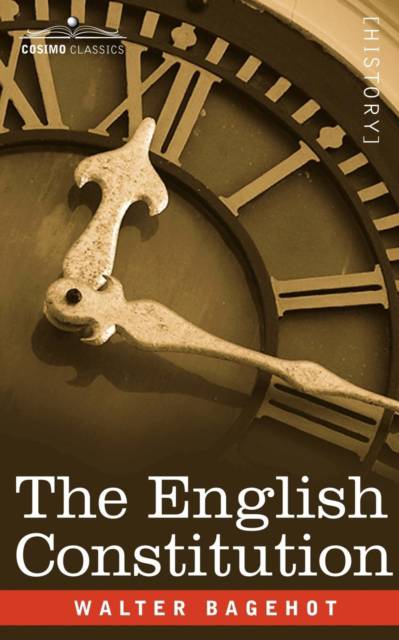
- Afhalen na 1 uur in een winkel met voorraad
- Gratis thuislevering in België vanaf € 30
- Ruim aanbod met 7 miljoen producten
- Afhalen na 1 uur in een winkel met voorraad
- Gratis thuislevering in België vanaf € 30
- Ruim aanbod met 7 miljoen producten
€ 28,45
+ 56 punten
Uitvoering
Omschrijving
Chronicling the past is much easier than chronicling the present, which was exactly Walter Bagehot's project when writing The English Constitution, first published in 1873. His ambitious undertaking was to describe the British government as it actually worked during 1865 and 1866. Government as it functions is very different from the government as it is spelled out on paper. Many factors, including the mindset of the people and the habits of those already in government, affect how a country is run. Political scientists and historians will find Bagehot's commentary on the living English government and invaluable tool in understanding the politics of the era. British journalist WALTER BAGEHOT (1826-1877) was an early editor of The Economist and was among the first economists to discuss the concept of the business cycle. He is also the author of Physics and Politics (1872) and The Postulates of English Political Economy (1885).
Specificaties
Betrokkenen
- Auteur(s):
- Uitgeverij:
Inhoud
- Aantal bladzijden:
- 368
- Taal:
- Engels
- Reeks:
Eigenschappen
- Productcode (EAN):
- 9781602062559
- Verschijningsdatum:
- 1/04/2007
- Uitvoering:
- Paperback
- Formaat:
- Trade paperback (VS)
- Afmetingen:
- 127 mm x 203 mm
- Gewicht:
- 399 g

Alleen bij Standaard Boekhandel
+ 56 punten op je klantenkaart van Standaard Boekhandel
Beoordelingen
We publiceren alleen reviews die voldoen aan de voorwaarden voor reviews. Bekijk onze voorwaarden voor reviews.








